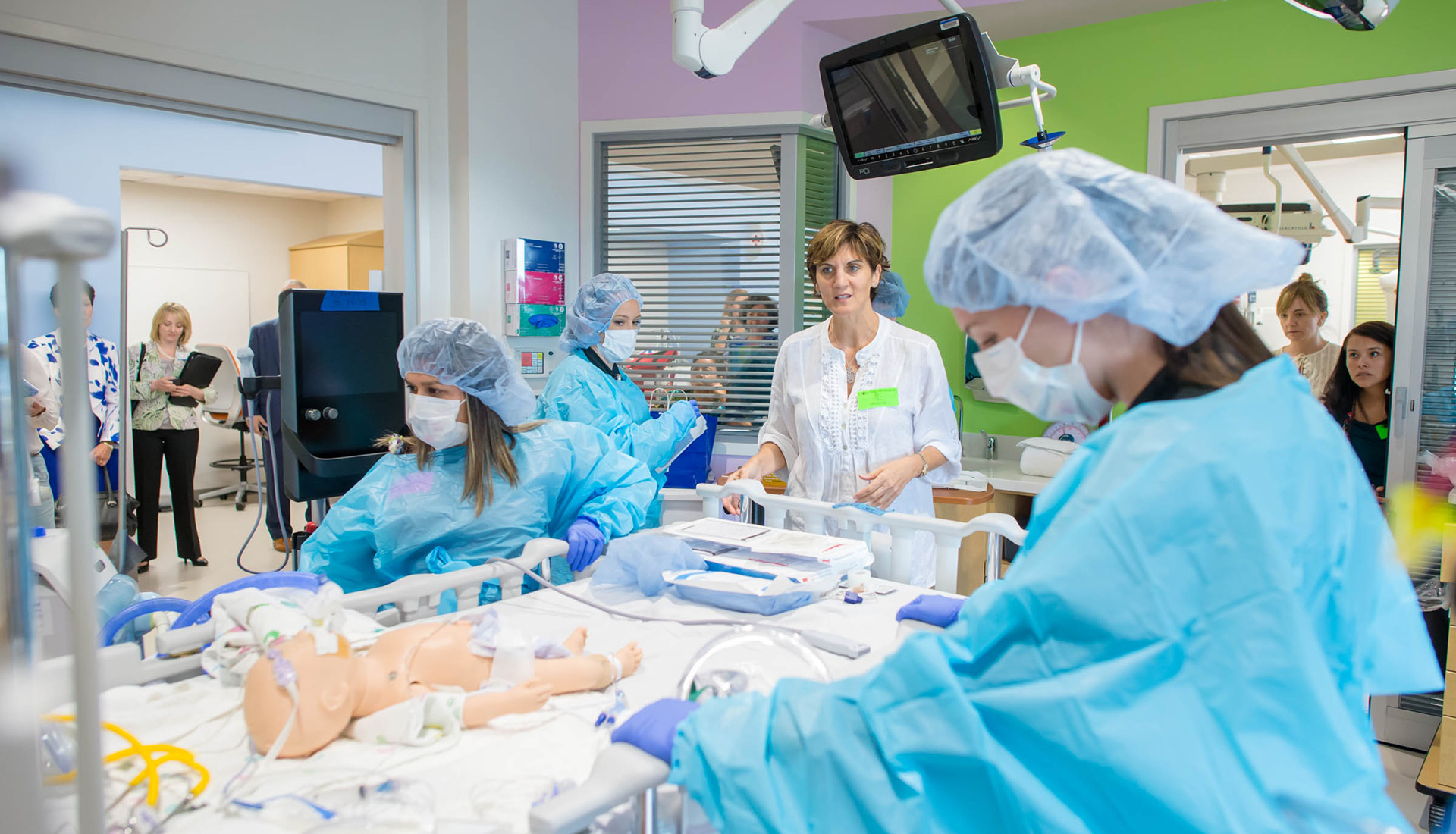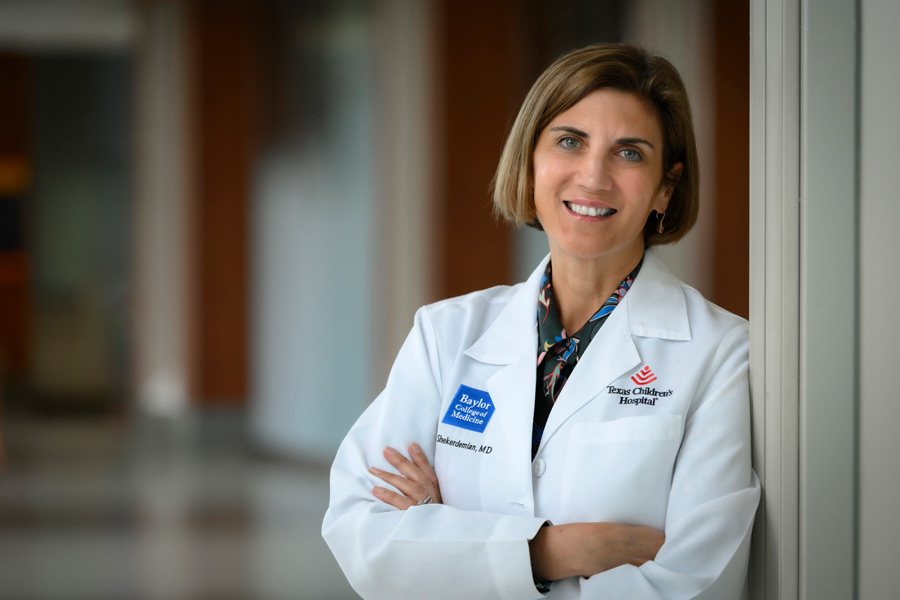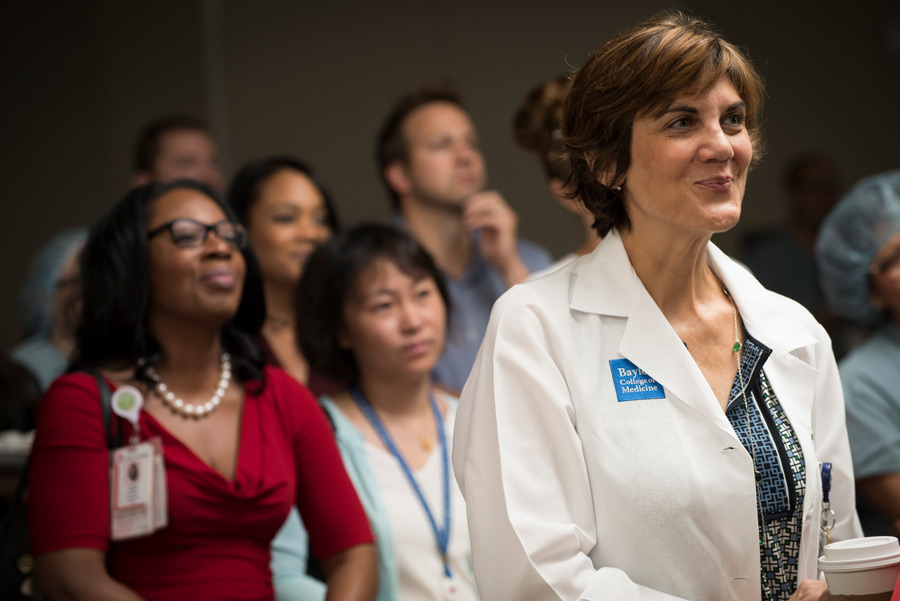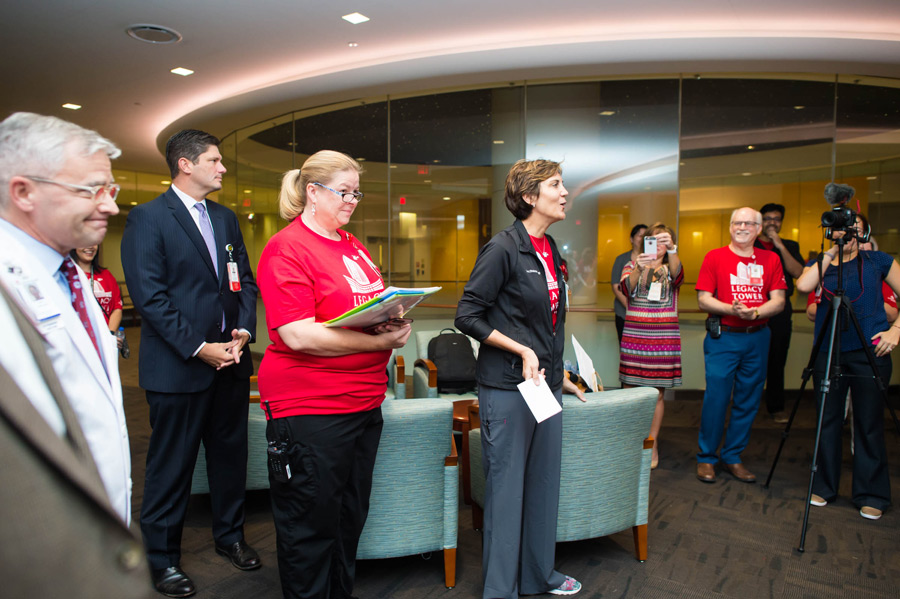


Lara Shekerdemian, MD, MHA, envisions a Department of Pediatrics focused beyond the quantity of life to the quality of life for the department’s young patients. One of her hopes — as Pediatrician-in-Chief at Texas Children’s Hospital and Chair of the Department of Pediatrics at Baylor College of Medicine — is that members of the department can work together to improve long-term outcomes after serious illness.
While survival rates for serious childhood illnesses have greatly increased in the past 25 years, Dr. Shekerdemian said, “We can’t rest on our laurels that we’ve cured a disease, or we’ve achieved remission, or operated on their heart and corrected a congenital malformation, or removed a tumor. It goes beyond this and we are now asking: what about their quality of survival?”
In her own specialties of pediatric intensive care and cardiac care, Dr. Shekerdemian has a passionate interest in research on long-term outcomes after acute and critical illness, with a focus on quality of survival and neurodevelopment throughout childhood.
“When it comes to children with heart disease, thanks to advances in prenatal management and how we care for these babies before, during and after surgery, nearly all of our patients now survive surgery, which is very different to how things were a few decades ago. So our focus is now shifting to doing all possible to give them the best long-term quality of life throughout childhood and beyond. We want them to do well at school, to have their own friends, to be independent with jobs and to be able to have families of their own,” she said.
Subtle but ultimately significant developmental abnormalities affect around 50 percent of children with congenital heart disease. A focus on minimizing the risk of neurological injury while in the hospital, during surgery and recovery, as well as routine screening and comprehensive follow-up, can help to identify potential problems very early, and gives an opportunity for early interventions by developmental experts.
In 2013, Dr. Shekerdemian established the Texas Children’s Heart Center’s comprehensive Developmental Outcomes Program for cardiac patients. This program has been very successful and continues to offer routine neurodevelopmental follow-up and interventions for all children undergoing cardiac procedures in infancy.
Children with heart disease are not the only vulnerable group. Many other patients with serious or chronic illness are similarly at risk of neurodevelopmental problems. In her new role as Pediatrician-in-Chief and Chair of Pediatrics, Dr. Shekerdemian believes that Texas Children’s Hospital is perfectly positioned to provide and lead in comprehensive long-term follow-up for other patient populations.
“Beyond how patients are treated medically, we must seriously take into account how social determinants of health play into the well-being of our patients and their families. Providing care cannot end once a disease is cured and a patient is discharged to go home,” she said.
“There are many more environmental challenges to consider, and we are focusing now more than ever on the inequities in health care and social determinants of health. Socioeconomic status, parental education, food insecurity and access to care are all factors that might make children more vulnerable to longer-term problems,” she said. “We have a huge Department of Pediatrics filled with leaders and innovators in their fields. It’s on us to lead the way and create equal outcomes for patients in every way possible.”

Even as a child, Dr. Shekerdemian was fascinated by medicine. When she went to the doctor’s office for routine checkups, she spent her waiting time reading leaflets and posters on medical topics.
Dr. Shekerdemian considers herself lucky to have trained at a time and place when the approach to graduate medical training was less structured than today. Beyond required fundamentals, residents could design their own plans.
After earning her medical degree from the University of Birmingham Medical School in the United Kingdom, she trained in pediatrics, pediatric cardiology, and pediatric and adult intensive care in the UK and Toronto. She obtained her research doctorate in pediatric cardiac intensive care, also from the University of Birmingham, in 1997. She earned a Master of Health Administration from La Trobe University in Melbourne, Australia, in 2009 while serving as Chief of Paediatric Intensive Care at The Royal Children’s Hospital, Melbourne.
In 2010, she joined Texas Children’s as Chief of Critical Care and became the youngest tenured professor at Baylor. She went on to serve as Vice Chair of Clinical Affairs and then Executive Vice Chair in the Department of Pediatrics.
Under Dr. Shekerdemian’s leadership, the Division of Critical Care grew to around 200 people, including physicians in a range of pediatric subspecialties, residents, fellows and administrative partners. Services expanded from 88 beds on one campus to 172 beds on three campuses, most recently with the opening of the Lester and Sue Smith Legacy Tower in 2018. During the pandemic, the nimble Critical Care team adapted to care not only for critically ill children with COVID-19 but also for critically ill adults when other Texas Medical Center ICUs were at capacity.

“As Chief of Critical Care, I was lucky enough to lead an incredibly flexible and trusting team of individuals who faced huge amounts of pressure and growth but always ran towards challenges willingly. Because of the quality and scope of their brilliance and their training, we were able to provide an unmatched level of subspecialty intensive care,” Dr. Shekerdemian said.
Support from others helped smooth the transition from division chief to chair of a department with more than 1,500 faculty members in 2022.
“I've had nothing but support from Baylor, from Texas Children's leadership and from our own chiefs of service as I have moved into my new role. It takes a village to keep the ship afloat, and I could not do this without them all,” she said.
“As chair, I am all about collaboration. We have so much to offer to our academic partners, our community, our neighbors and to our international sites, as well. Collaboration does not make us weaker; it doesn’t dilute us. It makes us stronger.”